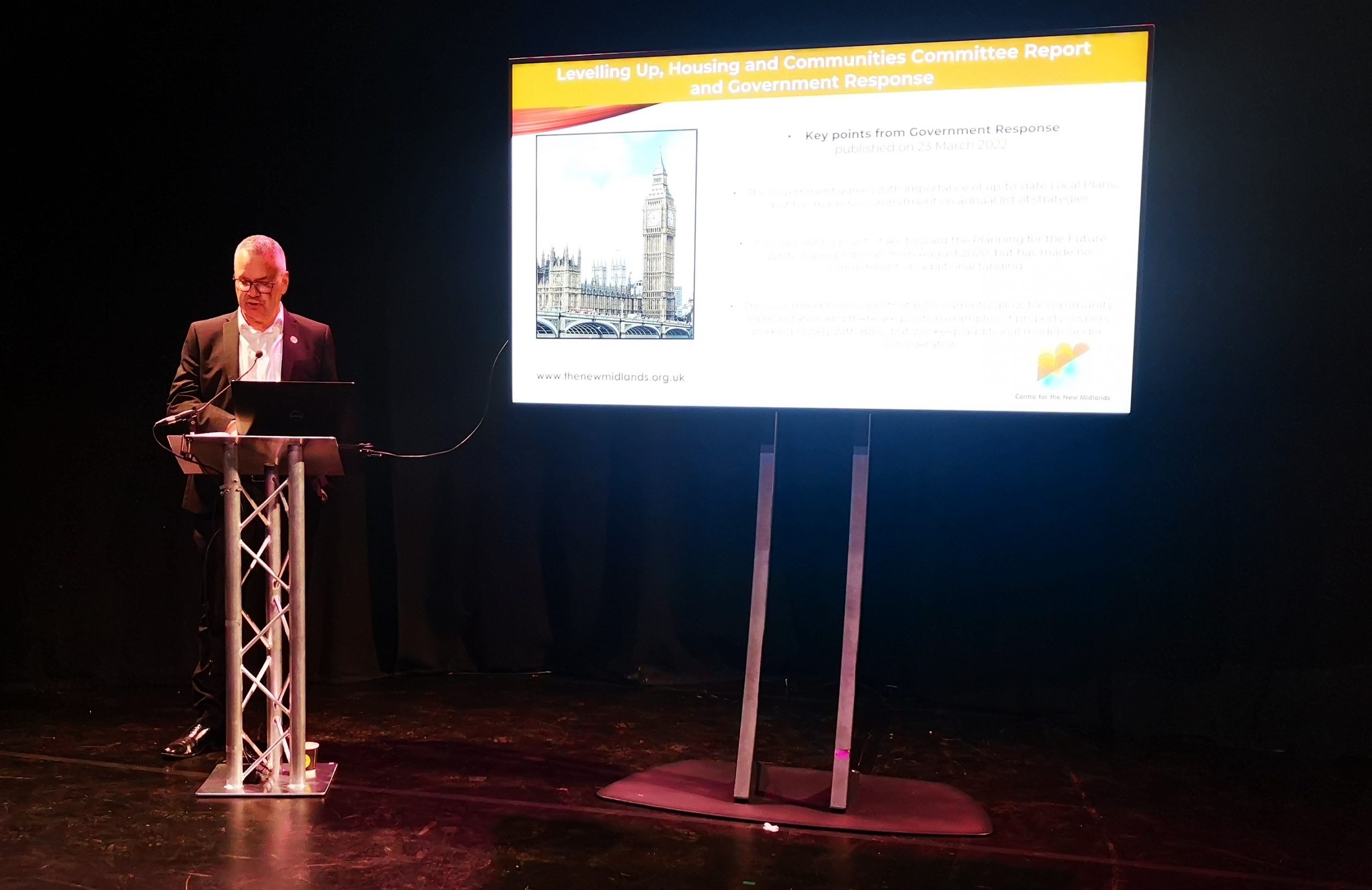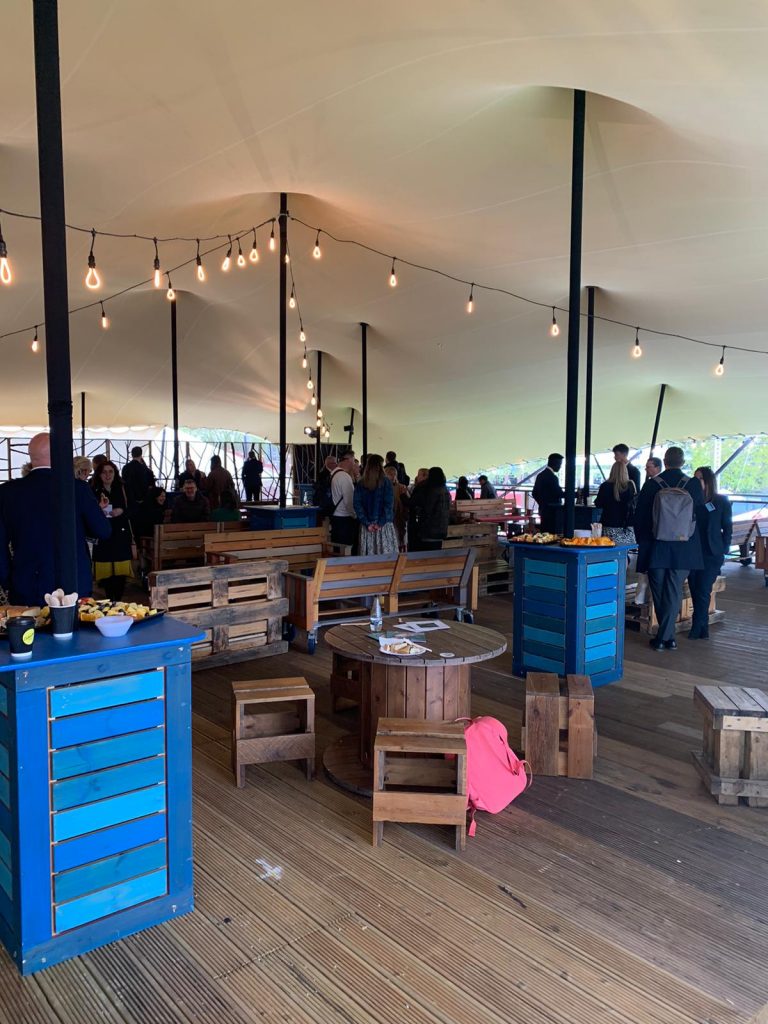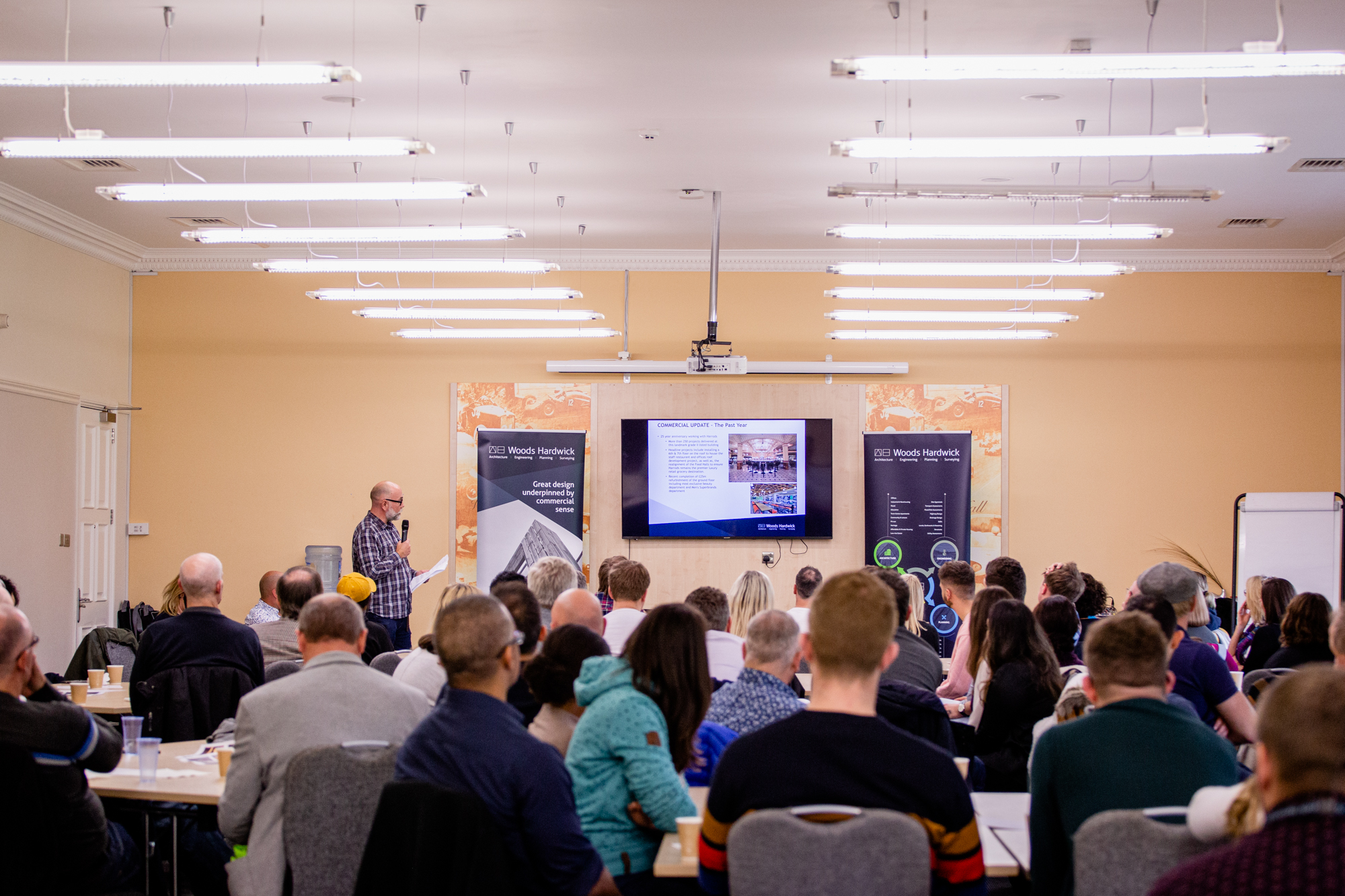
Planning Director Paul Woods shares what Levelling Up could mean for the High Street at British BIDS event
Yesterday Planning Director Paul Woods alongside Centre for the New Midlands’ Chris Smith, presented at the British BIDS conference, looking at the Levelling Up agenda and what it means for UK High Streets.
The event focused on BIDs, Culture and Communities, looking at how they can work together to drive economic growth and help their communities – with the main message; the need for greater collaboration.
What does the Levelling Up White Paper promise?
Published on 2 February, it sets 12 clear and ambitious medium-term missions over the period to 2030, linked to 4 policy objectives:
- Boost productivity, pay, jobs and living standards by growing the private sector, especially in those places where they are lagging;
- Spread opportunities and improve public services, especially in those places where they are weakest;
- Restore a sense of community, local pride and belonging, especially in those places where they have been lost; and
- Empower local leaders and communities, especially in those places lacking a local agency.
Creating Pride in Place (under objective 3) is a clear goal that directly relates to the work of BIDS across the UK. The aim is that by 2030, pride in place, such as people’s satisfaction with their town centre and engagement in local culture and community, will have risen in every area of the UK, with the gap between top performing and other area closing.
Support for Town Centres
The High Streets Task Force, commissioned by the Government in 2019, was set up to strengthen local leadership in high streets in England, bringing a range of expert organisations together to help people to make a positive difference to their communities. Meanwhile, the Building Back Better High Streets Strategy, released in July 2021 sets out the Government’s plan to ‘support the evolution of high streets into thriving places to work, visit and live’, including several funding schemes designed to help High Streets develop. Current funding streams being used to channel investment, include:
- Towns Fund – £3.6 billon
- Levelling Up Fund – £4.8 billion
- UK Community Ownership Fund – £150 million
- UK Shared Prosperity Fund – £2.6 billion
What about Permitted Development Rights?
Changes to permitted development rights, which came into force on 1 August last year, allow for change of use from Class E (commercial, service and business class) to Class C3 residential, subject to conditions including a size limit of 1,500 sqm and period of vacancy of at least 3 months as well as a prior approval process. It goes far beyond previous rights allowing offices to switch to residential use, now allowing for retail, professional services, restaurants, indoor sports facilities such as gyms, and healthcare settings as well as offices, research and development and light industrial to benefit from the change of use to residential for the first time.
Certainly, revolutionary for increasing housing numbers across the UK, but what could this mean for our already struggling high streets – loss of commercial uses could signal the death knell for the High Street as we know it. Yet equally it could present opportunities for change and reinvigoration if done in a strategic way.
How effective has Government policy been in support of high streets in the aftermath of the pandemic?
Our High Streets were suffering before March 2020, but the impact of the pandemic has been huge. The Levelling Up, Housing and Communities Select Committee report ‘Supporting our high streets after COVID-19’ was published in December 2021. This looked at effectiveness of government policy and funding schemes, concluding that Local Plans and strategies for high streets must be updated regularly, while also calling on additional funding for LPAs. It also recommended moving away from multiple disparate grants for relatively small sums of money for which local authorities must compete, instead advocating the combining of fewer grants for larger sums of money with a sustainable long-term funding settlement.
On permitted development rights, the Committee raised concerns that the current approach may introduce too much flexibility, especially with the change of use from office to retail no longer requiring a sequential test to protect main town centre uses.
In the Government’s Response published on 23 March this year, it agreed with the importance of up-to-date Local Plans, but has made no commitment on the annual list of strategies. The Government is also considering how to take forward the Planning for the Future White Paper proposals from August 2020, but has, as yet, made no commitment on additional funding.. Crucially the Government considers that BIDs enable community representation and that there are positive examples of property owners working closely with BIDs, although it will keep additional models under consideration.
The Government has acknowledged that the existing funding landscape is complex and is to set out a plan for streamlining this later this year. However, the current approach to permitted development rights will remain the same, argued to provide the right balance between consideration of impacts on residents and the amenity of the area with the sustainability of the high street.
So what does the future hold?
Ultimately the government is committed to ongoing support for town centres, and as such the application process for town centre funding will hopefully be made less complex. The BIDs model is here to stay in current form, although the Government will keep other models under review, while Class E and permitted development rights for change of use to Class C3 is also here to stay – time will tell as to impact.
Here at Woods Hardwick, we will be interested to see how Levelling Up Plans feature in the forthcoming Queens Speech on 10 May. Our Birmingham Planning team, led by Paul, has a detailed and sustained track record across the Midlands, an area that has been identified as one that is set to secure much needed funding.
To discuss the Levelling Up agenda and what this means in planning terms, get in touch with Paul Woods.




